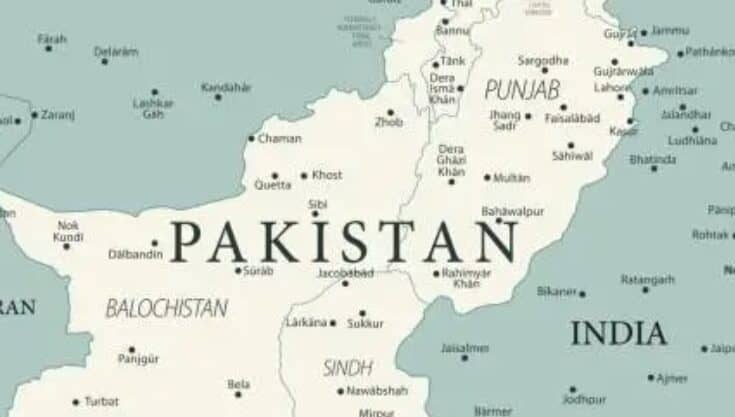Lahore, Pakistan Religious authorities and advocates for human rights in Pakistan denounced the murder of a Muslim detained on blasphemy charges on Thursday, September 12.
The reported killing of Abdul Ali by a constable named Saad Khan Sarhadi at a police station in Quetta, the capital of Balochistan Province, has deeply disturbed citizens nationwide, especially Christians who are still recovering from the recent lynching of Nazeer Masih Gill on a false blasphemy charge.
Ali was arrested on Wednesday (September 11) after he reportedly posted a video on social media deemed disrespectful to Islam’s prophet, Muhammad.
A group associated with Muslim extremist religio-political parties, such as Tehreek-e-Labbaik Pakistan (TLP) and Jamiat Ulema-e-Islam-Fazl (JUI-F), instigated a violent protest that led to the invasion of the Kharotabad police station. This incident happened after filing a case under Section 295-C of the blasphemy law. The protesters demanded the release of the individual implicated in the case.
The protesters also lobbed a grenade into the police station, but no one was injured, according to media reports.
Sensing Ali’s life was in danger, police had reportedly moved him to the heavily fortified Cantonment police station, where Sarhadi allegedly shot and killed him with his pistol, according to news reports. Police reportedly said they had arrested a policeman and charged him with murder but did not name him.
Sarhadi was allegedly taken into custody immediately. TLP and JUI-F activists celebrated the crime, calling him a “Ghazi” (martial fighter). Media reports showed that residents began visiting Sarhadi’s home, offering support and presenting flowers to his parents.
The alleged murder was reminiscent of the January 4, 2011, assassination of former Punjab Province Gov. Salmaan Taseer by his police bodyguard, Mumtaz Qadri, who opposed his criticism of blasphemy laws. Qadri was later convicted and executed.
The TLP has made headlines for controversial and radical statements and blasphemy-related violence in recent years, including attacks on multiple churches and homes of Christians in Jaranwala on August 16, 2023, and the lynching of Masih Gill in Sialkot in May.
Church of Pakistan President Bishop Azad Marshall said how Islamist groups and the public supported the alleged assassination showed how deeply extremism has become rooted in Pakistani society.
“The societal approval of extrajudicial actions not only undermines the judicial process but also fuels a cycle of violence where accusations of blasphemy can lead to immediate and deadly consequences, bypassing due process,” Marshall told Christian Daily International-Morning Star News.
Despite many appeals, he remarked that the government had taken no action to prevent such mindless violence.
Marshall argued that the glorifying of murderers may incentivize further exploitation of blasphemy laws.
“This is a hazardous situation for all Pakistanis, especially Christians, as we are already a very vulnerable community,” he said.
U.K.-based Christian Solidarity Worldwide (CSW) condemned the killing and urged the Pakistani government to take strict measures against all those responsible for such acts and to curb the misuse of the blasphemy laws.
“Regardless of the accusations against him [Ali], it was the duty of the police to protect him, and thus it is extremely worrying that he was shot and killed while in custody,” CSW President Mervyn Thomas said in a September 12 statement. “Who will ensure the safety of such victims when the police itself is involved in such acts of violence? The continued criminalization of blasphemy is wholly incompatible with Pakistan’s national and international commitments to freedom of religion or belief and a dangerous driver of religious extremism in the country.”
Samson Salamat, chairman of the Rwadari Tehreek (Movement for Equality), called for enacting and enforcing comprehensive laws that address all aspects of violent extremism.
He emphasized the importance of legislation safeguarding human rights and civil liberties to prevent marginalizing communities.
Salamat said that an affiliate of the Rwadari Tehreek, the Centre for Human Rights Education, has prepared a policy paper with recommendations and strategies for combating religion-driven violence.
“Turning violent trends into nonviolence requires a concerted effort across multiple sectors, including education, community engagement, legal reforms, media, and governance,” he said.
Implementing the recommendations in the policy paper could help Pakistan transition to a more peaceful and inclusive society, resolving conflicts through dialogue and cooperation rather than violence and coercion.
In Muslim-majority Pakistan, mere accusations of blasphemy, which is punishable by death in the country, have led to street lynchings. Human rights groups say Pakistan’s harsh blasphemy laws are often misused to settle personal scores.
According to the Lahore-based Center for Social Justice (CSJ), individuals or mobs have killed at least seven people accused of blasphemy across Pakistan since January.
Mob attacks between 1994 and 2023 resulted in the deaths of 94 people accused of blasphemy.
Pakistan’s ranking on Open Doors’ 2024 World Watch List remains unchanged at seventh, showing Christians’ continued challenges.



